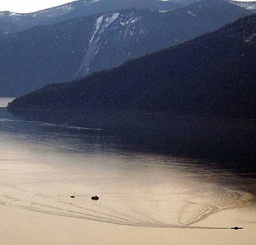What’s it like to learn to edit Wikipedia? Librarian Kelly Omodt at the University of Idaho Library reflects on her path from newcomer to contributor as a Wiki Scholars course participant.
My introduction to Wikipedia, like most school kids, was a warning to never use the site for serious research. Imagine my surprise while reading an email invitation from my university’s provost office to join the Idaho OPAL Fellows: Wiki Scholars 2024 cohort. At the time, I was serving on the Open Strategies Team for my university library and seeing the words “open pedagogy and advocacy” caught my eye before the phrase “Wiki Scholar”. I saw this as an opportunity to learn more about open pedagogy in practice and found myself thinking back to those teachers who warned against Wikipedia, feeling kind of like a rebel.
Looking for something to edit in Wikipedia was overwhelming, and more than a bit intimidating. I didn’t know what subject area to search through and find an article to work on. During the first classes of the Wiki Scholars course, we were warned not to choose a topic too dear to our hearts, in case unconscious bias began inserting itself into our edits. Choosing a fandom I knew little about felt safe, as I could read the content and look for minor edits, commas, run-on sentences, etc. A great deal of time was spent skimming through recommended articles on my editor homepage. Unfortunately, I kept clicking on the blue links within each Wikipedia article and found myself diving deeper into a fandom’s lore rather than making edits. I found my first edit by chance, slipped among the countless titles of my university’s library stacks.
While on the reference desk a student had asked for the English translation of Huraki Murakami’s, Norwegian Wood. While shelf-reading for the book, I came across an epistolary title, Postcards to Donald Evans. The book’s cover had soft colors, and a creative design that looked like it could be a prop in the film, Under the Tuscan Sun, and high-quality page paper; the book felt brand new, barely a crease in its softback cover. I am a fan of books written in letter format, and so on a whim I plucked it from the shelf and checked it out.
It was compiled over a decade ago, but the ‘postcards’ were written by the author, in the 1980s, to an already deceased artist, as part of a poet in residence program in the Midwest. I had no connection to the books’ author, but I loved the style of his book and eventually saw that Takashi Hiraide had a minimal Wikipedia article in English (the German Wikipedia article is much more in depth).
And so, I thought to myself, “why not, a lot of the things related to this individual already had Wikipedia articles with substantial content, I should be able to link to other related articles.” It was a purely chance moment, and I ended up adding a significant amount of content to Takashi Hiraide’s Wikipedia page. Having no relationship to the article content except for this random book helped me to keep flowery language and bias out of my writing. I felt extra pressure due to the fact Takashi Hiraide is still alive. I found myself diving into the weeds of Takashi Hiraide’s life and accomplishments, feeling like an old-time private investigator. Though the article is still listed as a “Stub Class” in Wikipedia, I am pleased to have been able to add so much information.
Having substantially edited this first article I was ready to write my own. Again, I came across the topic by chance, with help from one of my patrons. A student looking for information on Bigfoot led me to think of the cryptid, supposedly located in my hometown. To my delight, I discovered that it had yet to have its own Wikipedia article. I began researching with gusto. Once our Wiki Scholars instructor, Will, had looked it over, I published what I had written and it’s now a “C-Class” article!

I’m rather proud of myself for writing it, since at the beginning of the course I was hesitant to even delete or add a comma to someone else’s article. Learning about the ins and outs of Wikipedia and accompanying sites; Wikidata, Wikimedia Commons, etc. was not something I had planned for in my career as an academic librarian, but I am grateful that the opportunity arose. I find myself using Wikipedia more often for general searches, and I definitely mention it more in my information literacy classes. I hope to continue editing, as I believe more topics will come upon me by chance, just as it did with Takashi Hiraide’s Postcards to Donald Evans.
My greatest takeaway as an OPAL Fellow was marveling at how accessible it was to become an editor and learning how seriously editors review content. The process of learning how to become an editor, adding content, or creating new articles could be utilized by fledgling researchers at any academic institution.
Since the very first Wiki Education session, I can see the potential of Wikipedia in a variety of college coursework. I share with the students who pass through my information literacy classes about Wikipedia as a great launching point and crowdsourcing tool for their research papers. I have used Wikipedia, outside of the OPAL Fellow courses, more in the last year, than in my entire life and I’ve been inspired by my fellow Wiki Scholars and our course instructor to continue to contribute this open resource.
